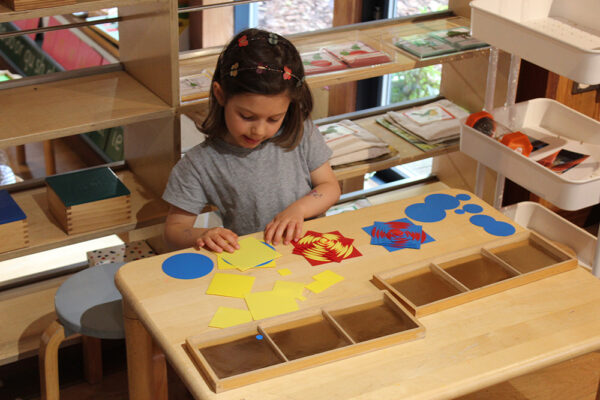Our Head of School, Michel Capobianco, writes:
I recently visited a museum and observed some children from another school on a trip with their teacher. The children had arrived in a coach and were counted into the building. They stayed in their large group and were moved quickly through the museum following the lead of the teacher who explained the exhibits to them. I was struck by the difference between the experience of these children and our children.
I was remembering when I had recently accompanied a group of our children on an outing. I was with four children aged six to eight years at the National Maritime Museum in Greenwich. When we arrived, the children realised that they didn’t have the money to pay for the entrance fee. The oldest of the group talked to the others about what they could do. After their discussion, they asked me if I could pay for the tickets that day and they would then organise a bake sale to raise the money to pay me back.
After this was agreed, we went into the museum and the children started their research right away by reading about the exhibits and writing notes. It took us some time to move through the museum as there were many questions to be discussed. Who decided on the words “latitude” and “longitude”? How did sailors know that time was different in different locations? Where did people get the materials to make watches? Why do we have 24 hours in a day? Why wasn’t clockmaker John Harrison given his award? Questions continued during lunch time and as we waited for the Time Ball on top of Flamsteed House to drop for the one o’clock signal.
Montessori observed that the strongest characteristic of the child aged 6-12 years is their reasoning mind and it was clear that this was being fully supported during the outing to Greenwich. Engaging with the practicalities of the visit and taking charge of their own learning experience at the museum helped the children to more deeply engage with the exhibits as well as developing reasoning skills.
Being able to collaborate and work as a team, being able to use creativity and imagination, being able to think critically and solve problems are all skills that can only be taught through experiences that fully engage children and require them to think for themselves. Encouraging children’s reasoning is essential not only for their natural development but also to enable them to gain these skills that are so vital for the 21st century.
Read about our Elementary programme here.













